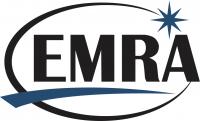A physician who specializes in Emergency Medicine focuses on the immediate decision making and action necessary to prevent death or any further disability both in the pre-hospital setting by directing emergency medical technicians and in the emergency department. This specialist provides immediate recognition, evaluation, care, stabilization, and disposition of a generally diversified population of adult and pediatric patients in response to acute illness and injury (1).
Residencies in emergency medicine prepare physicians for the practice of emergency medicine. These programs must teach the fundamental skills, knowledge, and humanistic qualities that constitute the foundations of emergency medicine practice. These programs provide progressive responsibility for and experience in these areas to enable effective management of clinical problems. Residents must have the opportunity, under the guidance and supervision of a qualified faculty member, to develop a satisfactory level of clinical maturity, judgment, and technical skill. On completion of the program, residents should be capable of practicing emergency medicine, able to incorporate new skills and knowledge during their careers, and able to monitor their own physical and mental well-being (2).
What does an emergency medicine physician do?
Although the first residency training programs in emergency medicine opened their doors over 45 years ago, it has already become one of the most popular specialties in the United States. The reasons are clear: emergency medicine offers an exciting and challenging medical career with good work-life balance, schedule flexibility, and patient variety. While emergency medicine certainly isn’t for everyone, recent data suggests the majority of practicing emergency physicians report high levels of happiness outside of work hours.
One of the unique features of emergency medicine that separates it from many other specialties is the diversity of patients treated, the relatively high percentage of time spent in direct patient contact, and the immediate impact you have on improving your patient's health. Emergency physicians treat patients from all walks of life: adults and children, men and women. They also treat a variety of illnesses at all stages, such as patients with neurologic, cardiac, pulmonary, renal, gastrointestinal, orthopaedic, obstetric, dermatologic and psychiatric diseases alike.
Though emergency physicians generally don’t perform major operations, they work with their hands a lot, performing both simple procedures such as laceration repair or fracture reduction, and complex procedures such as endotracheal intubation, chest tube placement, and obtaining emergency vascular access. Emergency physicians are experts is resuscitation and are trained to respond to any emergency calmly and quickly.
Even though emergency medicine practice can be stressful at times, both emergency physicians and emergency medicine residents have significantly lower working hours overall than most other specialties, though this may regularly include nights, weekends, and holidays. Although most emergency physicians continue to work at least some nights and weekends over their entire career, they have a great deal of flexibility in scheduling their shifts, allowing for greater engagement in activities outside the practice of medicine. Additionally, unlike many of their physician counterparts, they are not likely to be paged or called in, allowing them to attend the extracurricular activities or events they desire.
How to become an emergency medicine physician?
Specialty training required prior to certification: Three to four years
The best way to find out whether emergency medicine is the right choice for you is to try it out. If it’s not already required at your school, schedule an elective emergency medicine rotation during your third year or early in your fourth year. In order to be competitive when applying for residencies, you will need to complete a few emergency medicine rotations in order to get letters of recommendation from physicians currently practicing in the field. To make the most of your away rotations, consider programs that would be high on your rank list or offering exposure to different practice settings. Also, many medical schools offer first- and second-year students opportunities to shadow an emergency physician for a few hours a week.
The Emergency Medicine Residents’ Association (EMRA), the American Academy of Emergency medicine Resident & Student Association (AAEM/ RSA), the American College of Osteopathic Emergency Physicians Residents and Student Organization (ACOEP/RSO), the Society of Academic Emergency Medicine Resident and Medical Student Academy (SAEM-RAMS), the American College of Emergency Physicians (ACEP), the American Academy of Emergency Medicine (AAEM), the American College of Osteopathic Emergency Physicians (ACOEP), and the Society of Academic Emergency Medicine (SAEM) have additional resources available to help you along the path toward applying for emergency medicine residency.
To learn more about the history of Emergency Medicine watch EMRA’s Emmy and Telle award winning movie 24/7/365.
Sources
![]()
American Academy of Emergency Medicine
aaem.org
555 E Wells St
Ste 1100
Milwaukee, WI 53202
(414) 276-7390 or (800) 884-2236
Email: [email protected]

American Academy of Emergency Medicine Resident and Student Association
aaemrsa.org
555 E Wells St
Ste 1100
Milwaukee, WI 53202
(414) 276-7390 or (800) 884-2236
Email: [email protected]
![]()
American College of Emergency Physicians
acep.org
4950 W Royal Ln
Irving, TX 75063
(972) 550-0911 or (800) 798-1822
Contact information
![]()
American College of Osteopathic Emergency Physicians
acoep.org
PO Box 1488
Warrenville, IL 60555
(331) 248-7799
Email: [email protected]

Emergency Medicine Residents’ Association
emra.org
4950 W Royal Ln
Irving, TX 75063
(866) 566-2492
Email: [email protected]
![]()
Society of Academic Emergency Medicine
saem.org
1111 E Touhy Ave
Ste. 540
Des Plaines, IL 60018
(847) 257-7236
Email: [email protected]